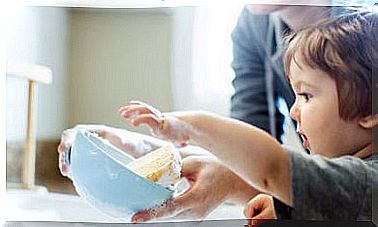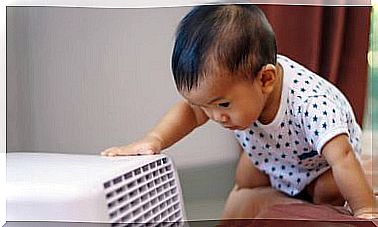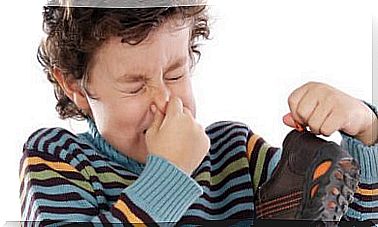Post-vacation Syndrome In Children

The return to normalcy after the holidays not only affects the elderly, but also affects the children. The fact of re-synchronizing clocks and abandoning the days of sun and beach due to the endless explanations of the teachers causes a contrast that is not always easy to digest. Therefore, in this article we are going to discuss how post-vacation syndrome affects children and how to deal with it.
Summer is a time to disconnect from the school months and regain strength for the next year. It is a season of the year that comes marked by free time, pool days and family getaways.
Added to this, children are especially vulnerable to changes, so it is normal that they also suffer a kind of post-vacation syndrome after the end of the summer months and when they resume their natural rhythm.
As a mother, your role and your motivational strategies are essential. On the contrary, if you observe that your child does not improve in a period of 2 or 3 weeks, we recommend visiting a specialist in order to recognize the causes that cause this feeling.
How to combat post-vacation syndrome in children?
Next, we will tell you how you can reduce the consequences of post-vacation syndrome in children. Take note!
1. Your attitude matters
The first of the tips to learn to deal with post-vacation syndrome in children has to do with your attitude, which is one of the most important aspects. If your children observe that you are the first to have difficulties when it comes to resuming work schedules, then it is very normal for the same to happen to them.

2. Reset schedules
The end of summer makes it time to re-sync clocks, put an end to runaway schedules, and implement some discipline. So we recommend that you go to sleep earlier until the body adapts to its new schedule; in this way, the child will feel less tired when getting up.
3. Look for the bright side
Any disappointment can be overcome with positivity. Therefore, it is suggested that your child faces this moment with happiness and in a positive way.
It is highly possible that, if you stop to think about it for a second, you will have many reasons to smile when you go back to school. It may be due to the fact of seeing your friends again or the incentive to pass another educational course.
4. Prepare together for the return to school
Finally, we recommend that you prepare with your child for going back to school to try to motivate him and talk with him about what the next course awaits. One of the ways to do this is by buying school supplies, be it pencils, folders, backpacks, etc. Use this argument as a strong point to prepare to go back to school with an extra dose of motivation.
Recognize the signs of post-vacation syndrome
To know if the post-vacation syndrome has affected your child, it is very important that you are attentive to recognize the signs that may indicate that something is happening inside. For example, if you argue at home a lot more than usual or are sad, you can start to wonder if this is not the case.
In these situations, it is time to listen to their concerns and motivate them for the new school stage. In the same way, we recommend that, in this transition process, you try to keep the children united with those connections that they have maintained during the holidays, such as family, friends or a natural space.

On the contrary, if you notice that he has a lot of difficulty getting up, coupled with low motivation to go to school, it may be one of the most obvious signs of post-vacation syndrome. In any case, you must be patient, since any return to normal always has its difficulty.
In short, post-vacation syndrome in children is something that affects a very high number of students when they resume normal schedules. As a mother, you should know that this is something totally common and that it should not cause you any type of concern.
In most cases, a few weeks of transition is the best ally. Finally, as we mentioned before, if the situation does not improve, a visit to a specialist will be necessary.










